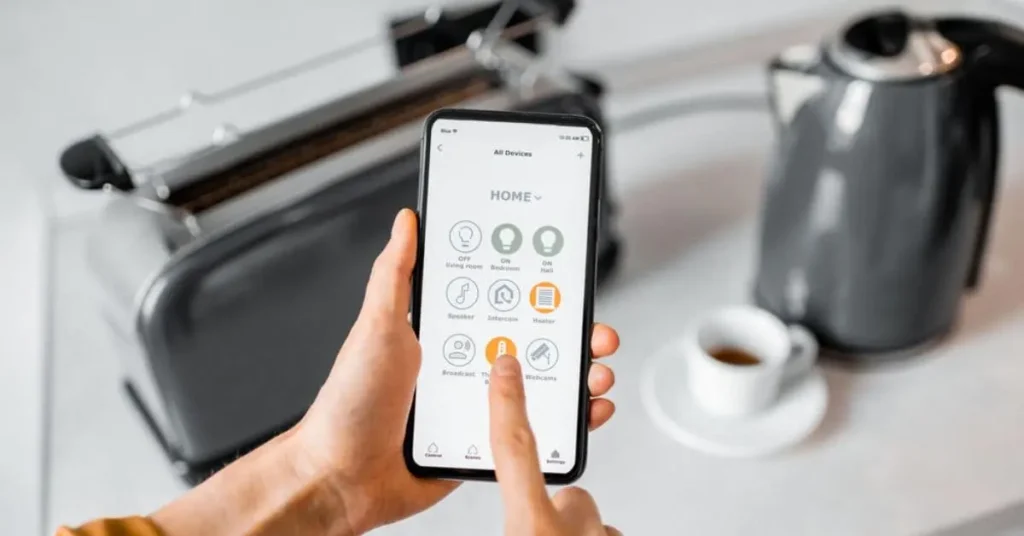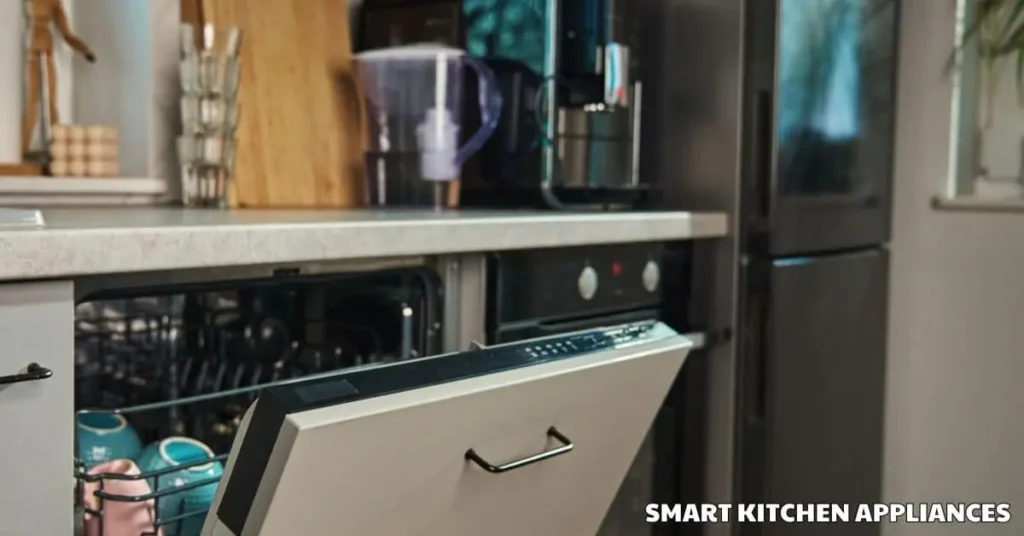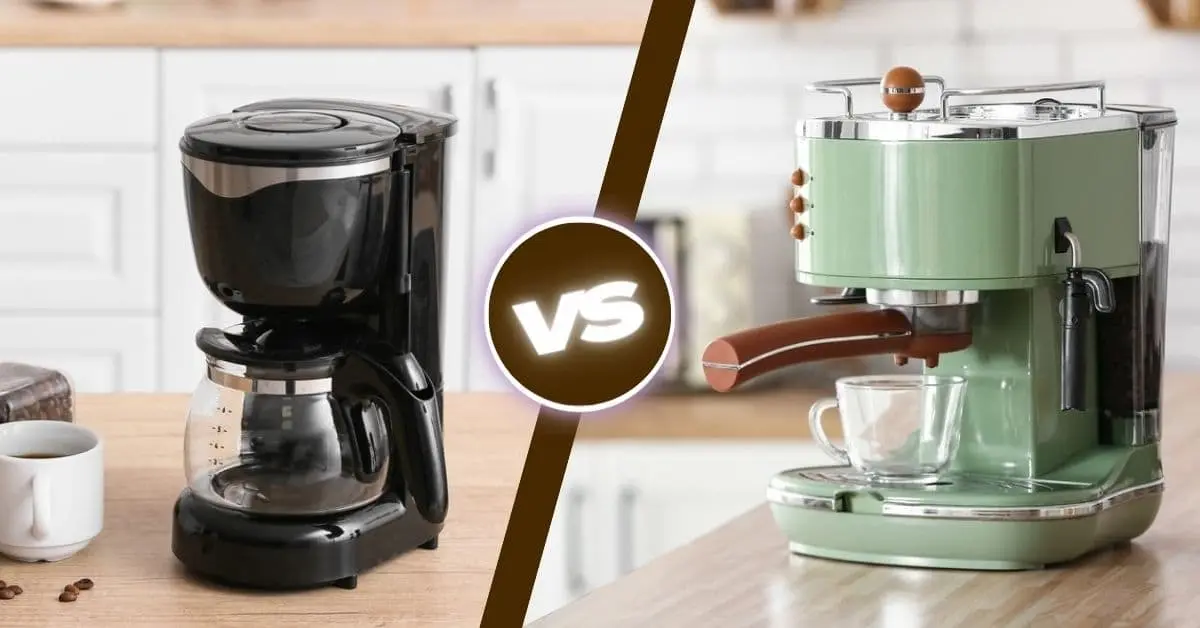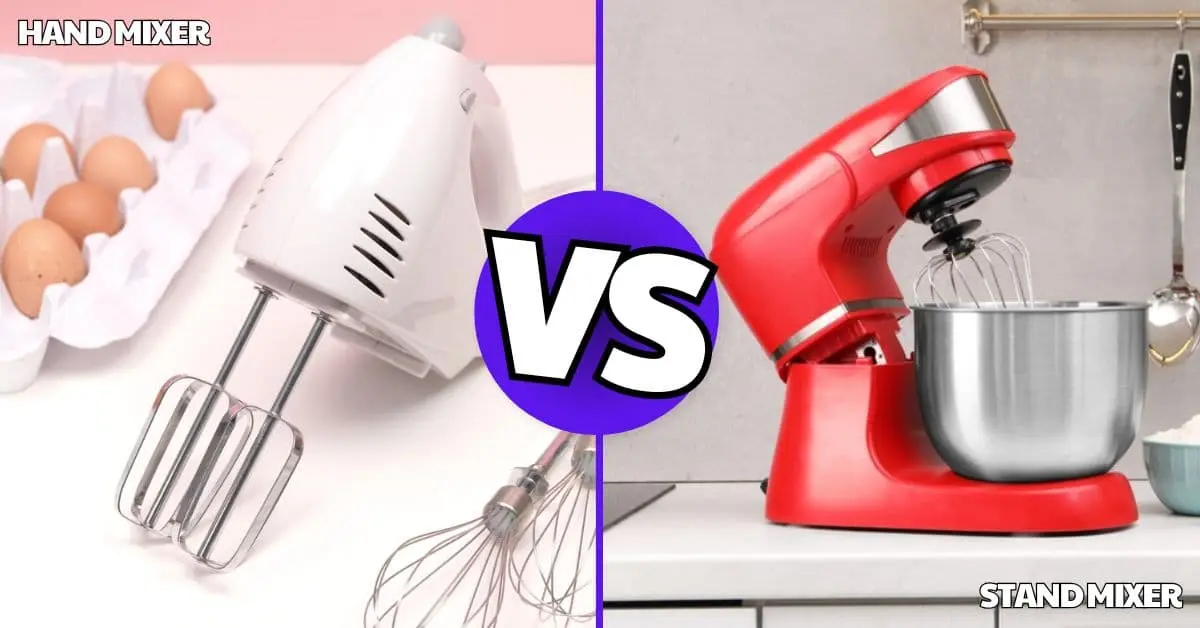Smart kitchen appliances are everywhere these days. From air fryers you can control with your phone to coffee makers that start brewing the moment you wake up—technology is changing the way we cook. But are these high-tech gadgets truly game-changers, or just expensive gimmicks?
If you’ve ever wondered whether smart kitchen appliances are worth the investment, you’re not alone. Some people swear by the convenience, while others feel traditional appliances get the job done just fine. In this guide, we’ll break down what smart kitchen appliances actually do, their benefits, potential downsides, and whether they’re the right fit for your kitchen.
Let’s dive in and see if these futuristic kitchen upgrades are really worth it!
What Are Smart Kitchen Appliances?
Smart kitchen appliances are like the upgraded, tech-savvy version of your regular kitchen gadgets. They connect to Wi-Fi, Bluetooth, or smart home assistants like Alexa and Google Assistant, letting you control them with your phone, voice, or even automation settings.
Unlike traditional appliances, smart ones come with advanced features like:
- Remote Control – Start, stop, or adjust settings from anywhere using an app.
- Automation & Scheduling – Set timers, preheat ovens, or schedule coffee brewing before you wake up.
- AI & Sensors – Some appliances can adjust cooking time, temperature, or detect food freshness.
- Smart Home Integration – Sync with other devices for a fully connected kitchen experience.
Examples of Popular Smart Kitchen Appliances
Here are some of the most common smart appliances and what they do:
| Smart Appliance | What It Does |
| Smart Air Fryer | Adjusts cooking time and temperature remotely, sends notifications when food is ready. |
| Smart Coffee Maker | Customizes brew strength, schedules brewing, and integrates with voice assistants. |
| Smart Oven | Uses AI to detect food and suggest cooking settings. Some models have built-in cameras. |
| Smart Refrigerator | Tracks food inventory, alerts you when items are low, and even suggests recipes. |
| Smart Multi-Cooker | Allows remote monitoring, pre-programmed cooking modes, and hands-free operation. |
At first glance, these appliances sound futuristic, but do they really make life easier? Let’s break down the benefits and see if they’re worth the hype.
Benefits of Smart Kitchen Appliances
Smart kitchen appliances aren’t just about looking futuristic—they offer real advantages that can make cooking, cleaning, and meal prep easier. Whether you want to save time, cut down on energy costs, or get more precise results, these appliances bring a level of convenience that traditional ones simply can’t match. Let’s take a closer look at the biggest benefits.

Convenience & Automation
Imagine preheating your oven on the way home or having your coffee brewed before you even get out of bed. That’s the kind of convenience smart kitchen appliances bring. Many of them can be controlled remotely through smartphone apps, meaning you don’t have to be in the kitchen to get things started.
Automation is another game-changer. Smart slow cookers, for example, can adjust cooking times based on the ingredients you add. Some smart refrigerators keep track of expiration dates and send reminders so you don’t end up with spoiled food. And if you have a voice assistant like Alexa or Google Home, you can control many of these appliances hands-free—perfect for when your hands are messy while cooking.
For busy households, this level of automation takes a lot of the guesswork and effort out of meal prep. Instead of constantly checking on your food, you can trust your appliance to handle the details for you.
Energy Efficiency & Cost Savings
Smart appliances aren’t just about convenience—they can also help lower your energy bills. Many of them come with sensors and AI-powered features that optimize power usage.
For example, smart ovens can adjust cooking temperatures automatically to avoid using more energy than necessary. Smart dishwashers can detect how dirty your dishes are and adjust water usage accordingly. And smart refrigerators can alert you if the door is left open, preventing unnecessary energy waste.
Over time, these small adjustments add up. While the initial cost of smart appliances is often higher than traditional ones, the energy savings can help offset that cost in the long run. Plus, many utility companies offer rebates for energy-efficient appliances, making the switch even more affordable.
Precision Cooking & Customization
If you love cooking but hate the trial-and-error process, smart appliances can take your meals to the next level. Many of them come with pre-programmed cooking modes, AI-assisted adjustments, and even built-in cameras to monitor food in real time.
Take smart ovens, for example. Some models can detect what type of food you’ve placed inside and automatically set the ideal cooking temperature and time. Others allow you to watch a live video feed of your food from your phone, so you don’t have to keep opening the oven door and letting heat escape.
Smart coffee makers are another great example. Instead of a simple on/off switch, these machines let you customize everything from brew strength to temperature and even schedule brewing times. Want your coffee extra strong at 6:30 AM every morning? Just set it once, and it’ll be ready exactly how you like it.
For people who love precision, appliances like smart sous vide machines and smart blenders ensure perfect results every time. With smart technology, you’re not just cooking—you’re cooking smarter.
Integration with Smart Home Ecosystem
One of the biggest advantages of smart kitchen appliances is how seamlessly they fit into a connected home. If you already use smart devices like thermostats, lights, or security cameras, adding smart appliances creates a more streamlined experience.
For instance, you can set up routines where your coffee maker starts brewing as soon as your smart alarm clock goes off. Your oven can send notifications to your smartwatch when dinner is ready. And if you have a smart speaker, you can control multiple appliances with a simple voice command—”preheat the oven to 375°F” or “start the dishwasher.”
Even better, some smart refrigerators sync with grocery delivery services, so if you’re running low on milk or eggs, you can add them to your shopping list with a quick voice command. The more smart devices you have, the more they can work together to make daily life more efficient.
Downsides & Challenges of Smart Kitchen Appliances
While smart kitchen appliances offer plenty of convenience, they’re not perfect. For some people, the benefits might not outweigh the costs or potential headaches. From high prices to connectivity issues, there are a few things to consider before making the switch. Let’s take a closer look at the biggest challenges of smart appliances.
High Upfront Costs
One of the first things you’ll notice about smart appliances is their price tag. Compared to traditional kitchen gadgets, smart versions often cost significantly more. A standard air fryer might run you $100, but a smart air fryer with app control and voice integration can cost $200 or more. The same goes for coffee makers, ovens, and refrigerators—adding smart features usually adds a few hundred (or even thousand) dollars to the price.
But is the extra cost worth it? That depends on how much you value convenience and automation. If you’re someone who loves using smart home technology and wants your kitchen to be part of that ecosystem, the investment might make sense. However, if you only use an appliance occasionally, the extra features might not be worth the premium price.
Here’s a quick comparison of traditional vs. smart appliances to give you an idea of the price difference:
| Appliance | Traditional Price | Smart Version Price |
| Air Fryer | $80 – $150 | $150 – $300 |
| Coffee Maker | $50 – $200 | $150 – $500 |
| Refrigerator | $800 – $2,500 | $2,000 – $4,500 |
| Oven | $500 – $1,500 | $1,500 – $3,500 |
If budget is a concern, it’s worth considering whether the smart features justify the higher cost. In many cases, traditional appliances still perform just as well—they just require a little more hands-on effort.
Connectivity & Security Concerns
Smart appliances rely heavily on internet connectivity, which means if your Wi-Fi goes down, some features may not work. While most smart appliances still function as regular appliances without an internet connection, you’ll lose remote access, app controls, and automation features. If you have spotty Wi-Fi or frequent network outages, this could be frustrating.
Security is another issue. Like any connected device, smart appliances can be vulnerable to hacking. While the risk is relatively low, it’s still something to consider. A compromised smart refrigerator, for example, could expose your Wi-Fi network to security threats. Some smart appliances also collect data on your usage habits, which raises privacy concerns for some users.
To minimize these risks, it’s important to:
- Use strong, unique passwords for appliance apps.
- Keep software and firmware updated to prevent vulnerabilities.
- Secure your Wi-Fi network with encryption and firewalls.
If you’re not comfortable with the idea of internet-connected kitchen gadgets, sticking with traditional appliances might be a better choice.
Learning Curve & Compatibility Issues
Not all smart appliances are easy to use. Some require app installations, account setups, and firmware updates before they’re even functional. While tech-savvy users might enjoy these features, others may find them frustrating or unnecessary.
For example, a smart oven might have dozens of cooking presets and an AI-powered food recognition system—but if you just want to bake a simple batch of cookies, navigating through multiple menus can feel like overkill.
Compatibility can also be a challenge. Not all smart appliances work seamlessly with every smart home system. A smart coffee maker might integrate perfectly with Alexa but not with Google Assistant. Some appliances require specific apps, which means if you have multiple brands in your kitchen, you could end up juggling several different apps just to use your devices.
Before buying a smart kitchen appliance, it’s important to check whether it’s compatible with your existing smart home setup. If you already have Amazon Alexa devices, for example, make sure the appliance supports Alexa integration. Otherwise, you might end up with a smart appliance that doesn’t fit into your ecosystem.
Are Smart Kitchen Appliances Worth It?
So, after weighing the pros and cons, are smart kitchen appliances actually worth it? The answer depends on your lifestyle, budget, and how much you value convenience.
If you love smart technology and already have a connected home, smart appliances can be a great addition. They make cooking easier, save time, and can even cut down on energy costs in the long run. Features like remote control, automation, and AI-driven precision can simplify meal prep and improve your overall kitchen experience.
However, if you’re on a tight budget or prefer a more hands-on cooking approach, the extra cost may not be justified. Traditional appliances still get the job done, often just as well, without the need for Wi-Fi or complex setups. Plus, if you don’t use automation features regularly, you might not see much of a difference in your daily routine.
Who Should Buy Smart Kitchen Appliances?
- Tech Enthusiasts – If you love smart home gadgets, these appliances will fit right in.
- Busy Households – If you’re constantly on the go, automation and remote control can save time.
- People Focused on Energy Efficiency – Smart appliances can help reduce electricity and water usage over time.
Who Might Want to Skip Them?
- Budget-Conscious Shoppers – Traditional appliances are more affordable and often perform just as well.
- Those with Unreliable Wi-Fi – Many smart features require a stable internet connection.
- Users Who Prefer Simplicity – If you don’t like dealing with apps and settings, a basic appliance might be better.
Best Smart Kitchen Appliances to Consider
If you’re thinking about upgrading your kitchen with smart appliances, choosing the right ones can make all the difference. Some smart gadgets offer true convenience, while others may not be as useful in daily life. Below are some of the best smart kitchen appliances that provide real value and functionality.

1. Smart Air Fryer
A smart air fryer takes the already popular air frying trend to the next level. With Wi-Fi connectivity, you can control cooking times, adjust temperatures, and even receive notifications when your food is ready—all from your phone. Some models come with built-in recipe guidance, automatically adjusting settings based on what you’re cooking.
Why it’s worth it:
- Remote control via smartphone app lets you cook while multitasking.
- Some models integrate with voice assistants like Alexa or Google Assistant.
- Pre-programmed cooking modes make meal prep even easier.
Best for: Busy households, health-conscious cooks, and those who love air-fried foods but want a more hands-off experience.
2. Smart Coffee Maker
If you’re tired of manually brewing coffee every morning, a smart coffee maker can make your routine effortless. These machines allow you to schedule brews, customize coffee strength, and start brewing from your phone or voice assistant. Some high-end models even adjust water temperature and brewing time for the perfect cup.
Why it’s worth it:
- Wake up to fresh coffee without pressing a button.
- Customizable settings for different brewing preferences.
- Integration with smart home routines (e.g., coffee starts brewing as soon as your alarm goes off).
Best for: Coffee lovers who want convenience and control over their brewing process.
3. Smart Oven
A smart oven can do more than just bake. Some models have cameras that let you monitor food without opening the door, while others come with AI that recognizes food and suggests the best cooking settings. You can also preheat the oven remotely or get alerts when your meal is ready.
Why it’s worth it:
- AI-powered cooking assistance prevents overcooking or undercooking.
- Remote monitoring means you don’t have to stand in the kitchen waiting.
- Some models offer voice control and app-based recipes.
Best for: Home chefs who love baking, roasting, or meal prepping with precision.
4. Smart Refrigerator
A smart fridge isn’t just a place to store food—it’s a full-fledged kitchen assistant. Many models come with touchscreen displays, food inventory tracking, and even internal cameras so you can check what’s inside while grocery shopping. Some also send expiration date alerts or suggest recipes based on what you have.
Why it’s worth it:
- Helps prevent food waste with inventory tracking and expiration reminders.
- Syncs with grocery delivery apps for easy restocking.
- Touchscreen panels offer calendars, music streaming, and more.
Best for: Large families, meal planners, and tech lovers who want an all-in-one kitchen hub.
5. Smart Multi-Cooker (Instant Pot)
A smart multi-cooker, like a Wi-Fi-enabled Instant Pot, takes pressure cooking to the next level. With a connected app, you can adjust settings, monitor cooking progress, and even receive step-by-step cooking instructions. Some models also include voice control compatibility.
Why it’s worth it:
- Remote control allows you to start or stop cooking from anywhere.
- Pre-programmed cooking modes eliminate guesswork.
- Ideal for slow cooking, pressure cooking, steaming, and more—all in one appliance.
Best for: Anyone who wants to simplify meal prep with a versatile, all-in-one cooking device.
6. Smart Dishwasher
A smart dishwasher can automatically adjust water usage based on how dirty your dishes are, notify you when a cycle is complete, and even reorder detergent when you’re running low. Some models also have leak detection to prevent potential water damage.
Why it’s worth it:
- Saves water and energy by optimizing wash cycles.
- Remote monitoring lets you control the dishwasher from anywhere.
- Maintenance alerts help prevent breakdowns.
Best for: Households looking to improve efficiency and reduce water usage.
7. Smart Sous Vide Precision Cooker
Sous vide cooking is all about precision, and a smart sous vide cooker lets you monitor and adjust temperatures remotely. Many models connect to apps with built-in recipe guides, ensuring restaurant-quality results without constant supervision.
Why it’s worth it:
- Maintains precise temperatures for perfect cooking results.
- Remote control means you don’t have to hover over the kitchen.
- Great for cooking meats, vegetables, and even desserts with sous vide precision.
Best for: Foodies and home chefs who love high-end cooking techniques.
FAQs for Smart Kitchen Appliances
Are smart kitchen appliances worth the extra cost?
It depends on your needs. If you value convenience, automation, and smart home integration, they can be a great investment. However, if you’re on a budget or prefer traditional appliances, the extra cost might not be justified.
Do smart kitchen appliances work without Wi-Fi?
Most smart appliances will still function manually without Wi-Fi, but you’ll lose smart features like remote control, app monitoring, and voice commands. If connectivity is unreliable in your home, a traditional appliance might be a better choice.
Are smart kitchen appliances energy efficient?
Many smart appliances are designed to be more energy-efficient than traditional models. Features like automatic shutoff, energy monitoring, and optimized cooking cycles can help reduce electricity and water usage over time.
Can smart kitchen appliances be hacked?
Like any internet-connected device, smart kitchen appliances carry a small risk of hacking. To stay safe, use strong passwords, update firmware regularly, and secure your home Wi-Fi network.
What are the best smart kitchen appliances to start with?
If you’re new to smart kitchen tech, start with a smart coffee maker, smart air fryer, or smart multi-cooker. These offer practical benefits and are easy to integrate into daily routines.
You May Also Like: List of Kitchen Essentials for a New Home
Final Verdict: Should You Invest in Smart Kitchen Appliances?
So, after looking at the benefits, challenges, and best options available, should you take the plunge and invest in smart kitchen appliances? The answer depends on your needs, lifestyle, and budget.
If you love convenience, automation, and high-tech features that make cooking easier, smart appliances can be a game-changer. They save time, reduce energy use, and bring a level of precision that traditional appliances can’t match. Whether it’s brewing coffee before you wake up or remotely preheating your oven, these features can make daily life smoother.
However, they’re not for everyone. The higher upfront cost, reliance on internet connectivity, and learning curve may not be worth it for some. If you’re comfortable with your current appliances and don’t feel the need for remote control or automation, a smart upgrade might not be necessary.
When Smart Kitchen Appliances Are Worth It:
- You love smart home integration and automation.
- You have a busy lifestyle and want time-saving features.
- You’re willing to invest in energy-efficient, long-term solutions.
- You enjoy experimenting with advanced cooking techniques.
When They Might Not Be Necessary:
- You prefer a simple, hands-on cooking experience.
- Your Wi-Fi is unreliable, making smart features frustrating.
- You’re on a budget and don’t want to pay extra for technology you won’t use.
Ultimately, smart kitchen appliances offer a lot of advantages, but they’re not an absolute must-have for everyone. If the features align with your lifestyle and budget, they can be a fantastic investment. But if you’re happy with your current setup, there’s no rush to upgrade—at least not until the technology becomes even more seamless and affordable.





